This word is used to describe the set of all inputs for a function.
domain
No, not a function. It does not pass the vertical line test.
Describe the transformations.
f(x)=-4(2)x+1
-reflection over x axis
-vertical stretch bafo 4
-horizontal shift left 1
What is the maximum value for the graph?
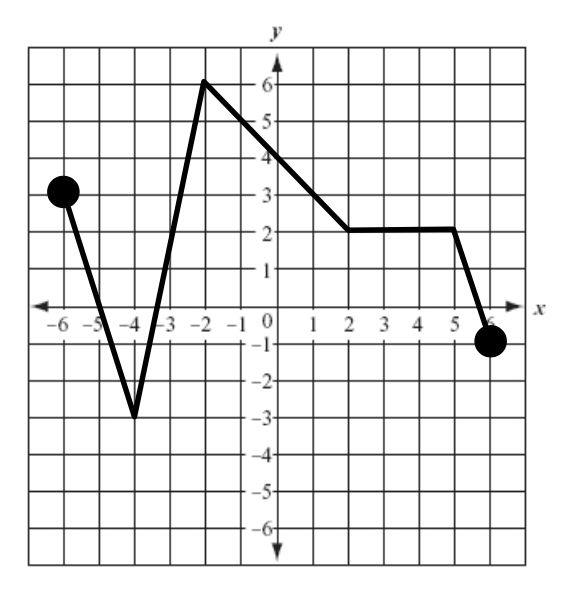
6
f(x)= (-5/8)x+10
g(x)= (1/2)x + 8
g(x)
This word is used to describe the set of all outputs of a function.
range
Yes, passes the vertical line test.
Describe the transformations.
f(x)= 1/2 sqrt(-2x+4) + 1
-Vertical compression bafo 1/2
-Reflection over y axis
-Horizontal compression bafo 1/2
-Horizontal shift right 2
-Vertical shift up 1
The shaded region is increasing, decreasing, or constant.
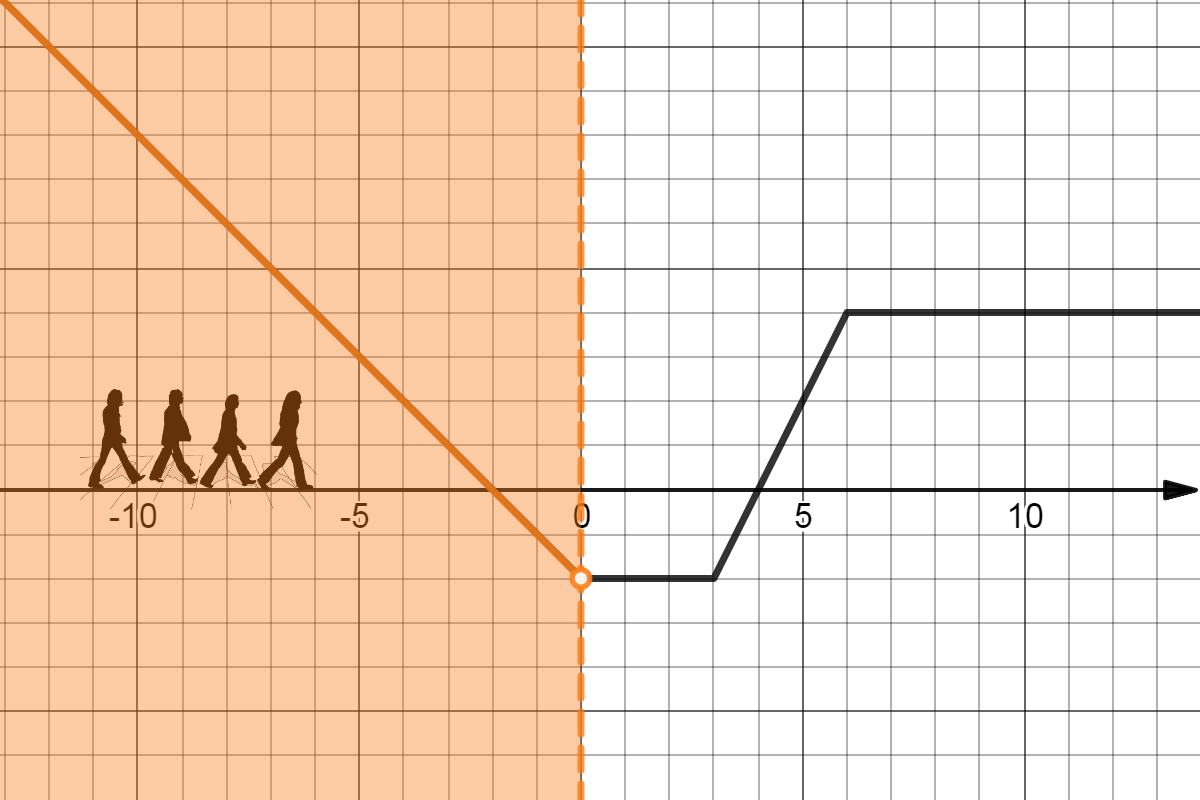
Decreasing Interval
Find the inverse of f(x) = 12x - 3
Simplify into two terms.
f-1(x)=(1/12)x+(1/4)
What is the formula for average rate of change?
f(b)-f(a)/b-a
The mapping diagram shows a function or not.
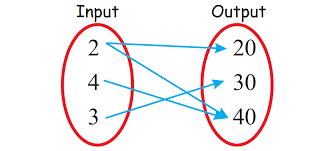
No, not a function. One x value has two y values.
f(x) = 21/2x+2 - 2
- Horizontal stretch bafo 2
- Horizontal shift left 4
- Vertical shift down 2
What is f(2) for this function?
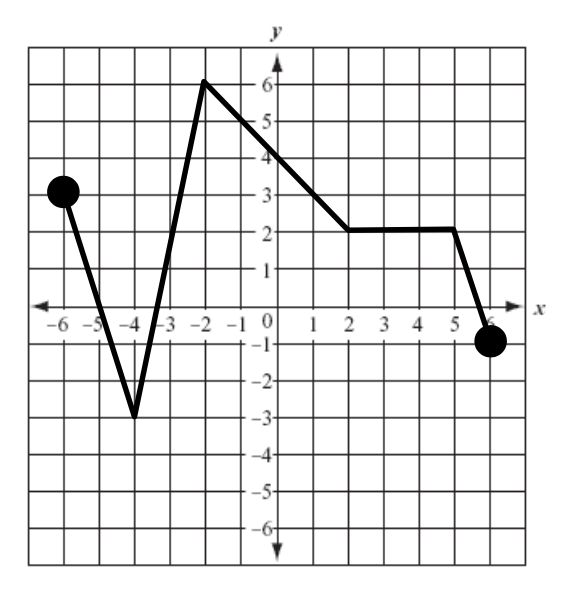
f(2)=2
Find the inverse of f(x)=sqrt(x-2)
f-1(x)=x2+2
How do you determine if a GRAPH is a function or not?
Vertical Line Test
Does the following table represent a function?
x y
1 2
2 5
6 2
2 9
5 1
No, because the input (x) of 2 has two different outputs (y)
Apply the transformations to f(x)=2x
- Vertical compression bafo 1/3
- Reflection over y axis
- Horizontal shift right 1
**Simplify exponent
f(x) = 1/3 (2)-x+1
The y-intercept of the graph.
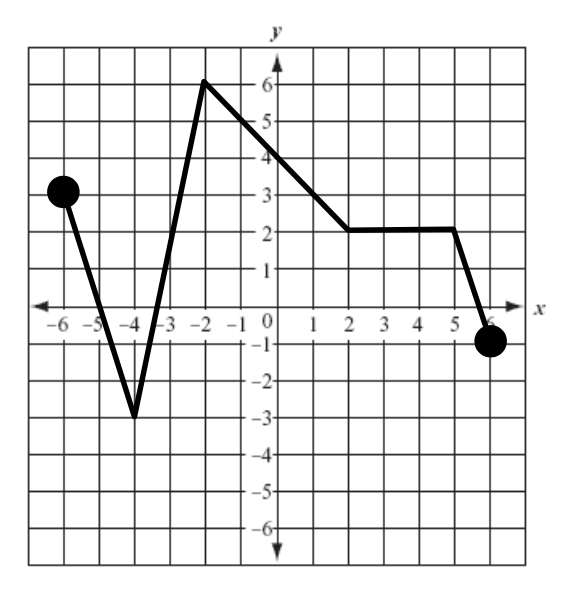
(0, 4)
Find the inverse of f(x)=sqrt(x)+8
Distribute for final answer.
Before distribute: f-1(x)= (x-8)2
Final Answer: f-1(x)= x2 - 16x + 64
This word describes any set of ordered pairs where each x-value is paired with one y-value.
Function
Is this a function and why?
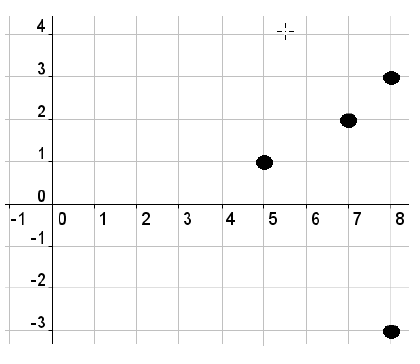
No, because x's repeat at 8
Apply the transformations to f(x)=sqrt(x)
- reflection over x axis
- vertical stretch bafo 3
- horizontal compression bafo 1/2
- vertical shift up 3
f(x) = -3 sqrt(2x)+3
f(x) = 2x2 + 12x + 16
What is the average rate of change of f(x) on the interval [-3, -2].
2
Graph the inverse of f(x)=2x+14
f-1(x)=(1/2)x-7
y-intercept: -7
slope = positive 1/2